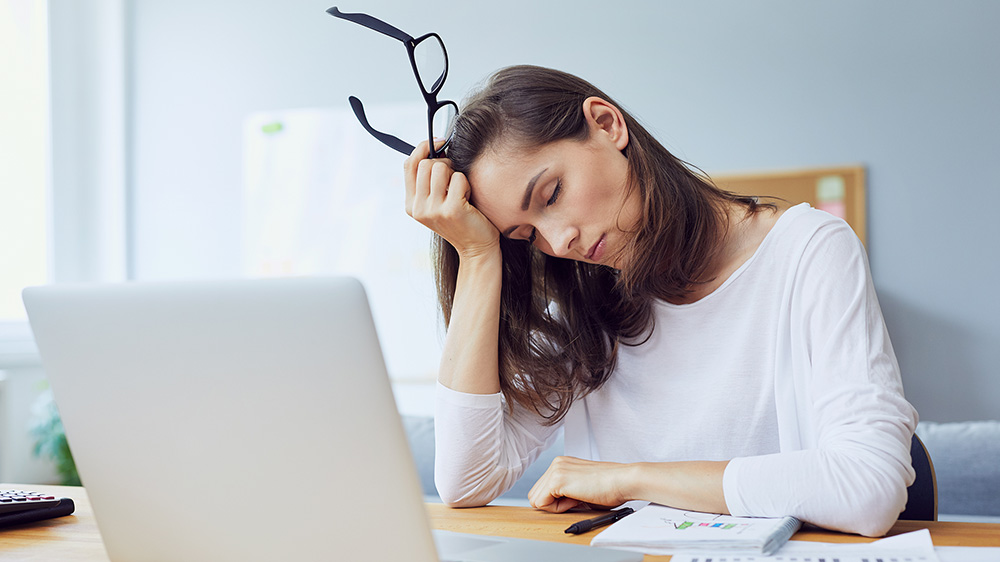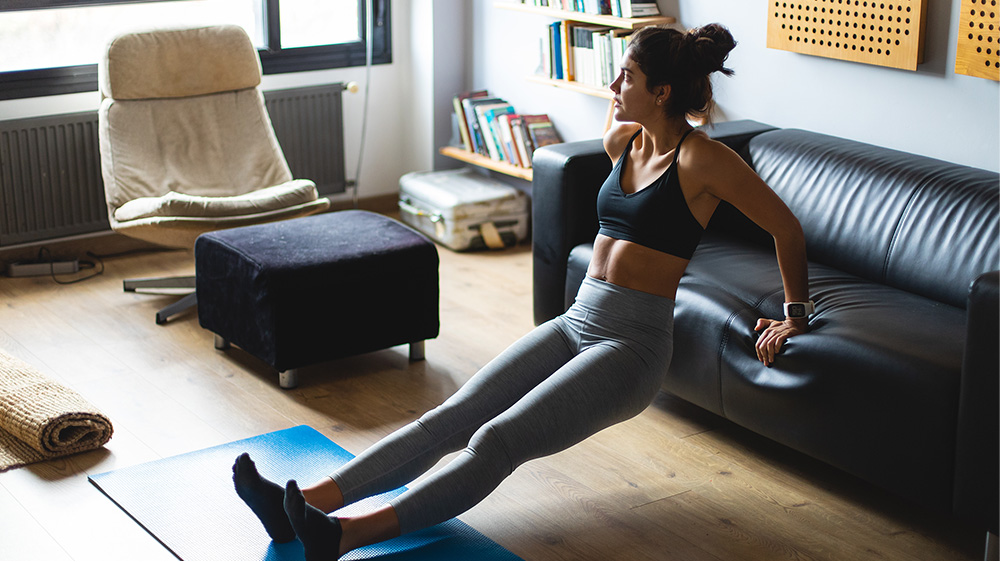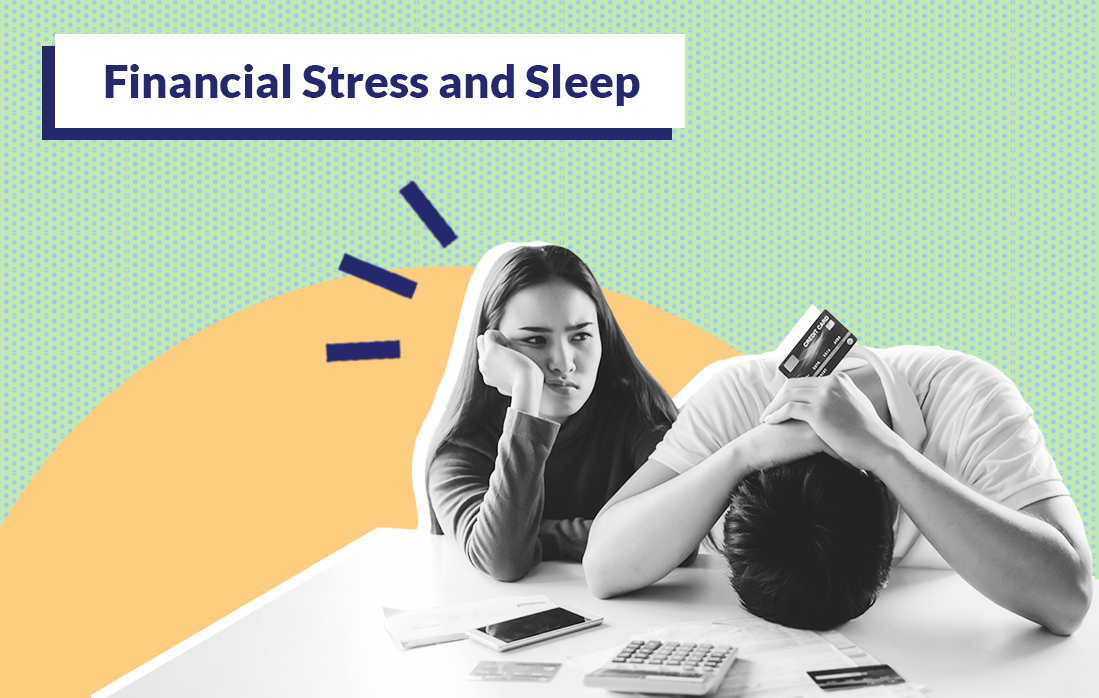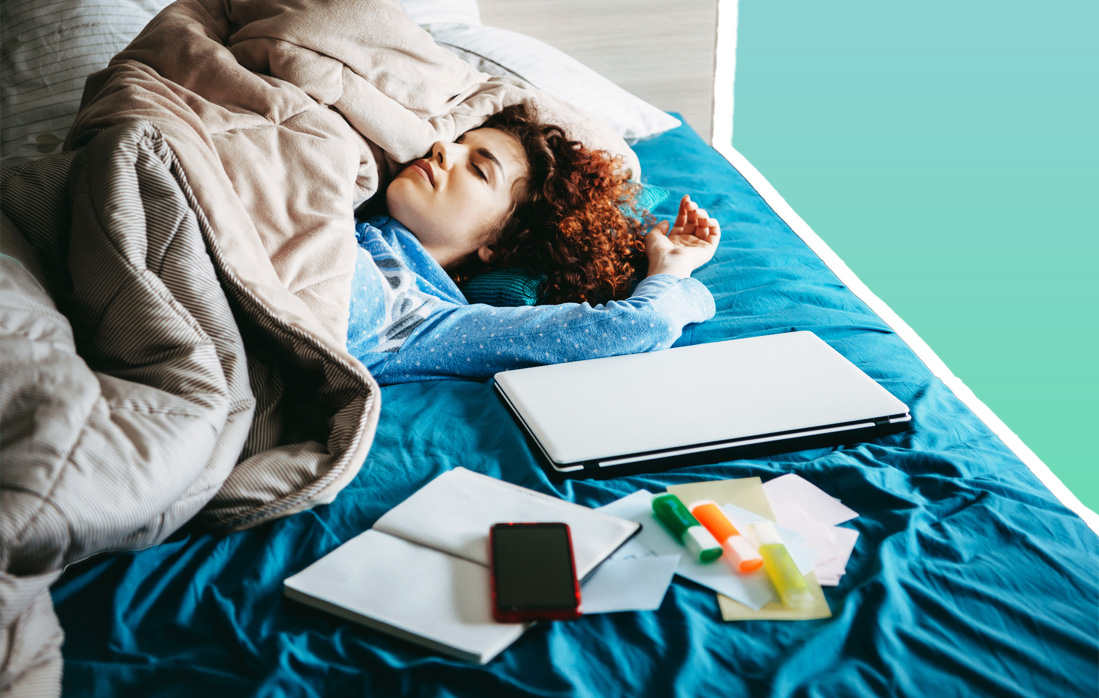
Stress is a widespread, major issue among Americans, and women tend to report the highest levels. In the American Psychological Association’s (APA) 2023 Stress in America survey, women reported a 10 percent higher average level of stress and were almost 30 percent more likely to rate their stress levels between 8 and 10 than men. (1)
Research consistently shows that stress damages mental and physical health and makes sleep harder to come by. Moreover, lacking sleep increases stress levels, creating a vicious cycle. So, it’s unsurprising that a recent Gallup poll reveals Americans are getting less sleep nowadays. (2)
Underlying differences in biology, societal expectations, psychology, and lifestyle are each linked to why women struggle to get sufficient sleep. Becoming more aware of how each factor plays a role is crucial for improving women’s wellbeing.
Women Are Tired and Stressed
In 1942, 59 percent slept 8 hours or more, and only 3 percent got less than 5 hours. By 1990, 27 percent slept 8 hours, and 14 percent got less than 5. Today, only 25 percent sleep 8 hours or more — while almost an equal number — 20 percent sleep 5 hours or less.
The poll shows that younger women are less likely to get enough sleep than other groups. Less than a third of younger women report getting adequate sleep, compared to 46 percent of younger men and 44 percent of older women. While younger men were only slightly less likely to get enough shuteye, the number of younger women lacking sleep is climbing more dramatically.
An analysis of studies on over 30,000 adults shows that women consistently report lower sleep satisfaction and efficiency compared to men. Societal stressors such as caregiving responsibilities and emotional labor in organizing households contribute to higher stress levels and sleep difficulties for women. (3) This is likely why the analysis shows sleep quality tends to improve with age for both men and women, likely due to reduced family and work pressures.
In the APA stress survey, both men and women reported that health and finances were substantial sources of stress. However, women were more likely than men to report feeling overwhelmed by money concerns.
Women were also more likely than men to cite family responsibilities and relationships as prime stressors in their lives. And when sleep is lacking, challenges in these areas are more frequent and taxing.
Biology Plays a Role
Researchers conducting a recent review on sleep differences between men and women discovered that women’s circadian periods are approximately six minutes shorter than men’s. (4) Circadian rhythm is our internal clock that runs on a 24-hour cycle.
“This cycle not only influences when you should sleep, but it also influences when you’re most alert, when you’re most likely to perform well, when you should eat, and when you’re [in] your best mood,” explains Mark S. Aloia, Ph.D., Head of Sleep and Behavioral Sciences, Sleep Number and Associate Professor, National Jewish Health. The review also found that women tend to perceive their sleep quality as lower and less consistent than men, correlating with menstrual cycle fluctuations.
It is usually more challenging to fall asleep during the menstrual cycle, especially during the luteal phase. Nightly awakenings are more frequent, sleep quality is lower, and deep, restful sleep (REM sleep) decreases.
Lack of sleep can worsen moods, especially for women, due to hormonal changes during the menstrual cycle affecting neurotransmitters like serotonin and dopamine, leading to mood swings and intense emotions.
Recently, researchers explored how menstrual cycles impact women’s sleep and emotions, finding increased anger and sleep difficulties in the days leading up to and during their period. (5) Women who have difficulty sleeping during this phase feel more anger compared to other phases of their cycle and feel less happy, calm, and positive.
Lack of Sleep Affects All Areas of Women’s Lives
The implications of sleep loss for younger women go beyond a groggy day here and there. “Getting too little sleep can be detrimental to mood, cognitive functioning, immune function, recovery from stress, injury, or illness, and overall healthier lifestyle choices, so the effects can be long-lasting,” says Dr. Aloia.
According to Angela Amias, LCSW, Clinical Director of the Institute for Trauma-Informed Relationships, Founder of Alchemy of Love, and Cohost of the Alchemy of Connection Podcast, sleep deprivation makes coping with daily stress harder and increases sensitivity to minor issues. Plus, being physically worn out makes feeling positive and grateful much more difficult.
Women are more likely to internalize stress, which manifests as physical and mental disorders, while men tend towards externalizing stress through aggression or impulsivity, according to research in the Journal of Affective Disorders. (6)
Sleep is crucial for enjoying life and impacts mental health, emotional wellbeing, and relationships, says Amias. “Sleep is the body’s natural way to restore its resources and allow us to respond to life’s circumstances,” she explains.
How Women Can Improve Their Sleep
For the best chances of optimal sleep, practice good sleep hygiene by developing a routine, keeping your bedroom cool, dark, and quiet, avoiding caffeine, alcohol, and heavy meals at night, and practicing regular exercise and self-care.
The number one way Dr. Aloia says women can improve their sleep efficiency is by prioritizing a regular bedtime. “Consistency goes a long way, and if your sleep schedule varies too much day-to-day, you may need to try to reel in your sleep routine with similar sleep and wake times—wake time is the most important factor in setting your circadian rhythm,” he explains.
Using sleep trackers or journaling your lifestyle and sleep routines and how they impact your physical and mental health can give you an idea of where to tweak your habits. “With this technology, you can adjust your sleep behaviors and track their impact on your sleep and health over time,” says Dr. Aloia.
Simply becoming more aware of how much sleep loss affects your life can be enough to inspire changes that help you prioritize yourself at night. “We sometimes downplay our sleep and might be more attuned to mood than sleep,” says Dr. Aloia. “In those cases, pointing out that mood can be affected might lead people to be more willing to consider adjustments to their sleep.”

A Major New Study Suggests “Regular” Exercise Lowers Risks for Insomnia: So What’s “Regular”?

A Guide to Managing Financial Stress for Better Sleep

Gen Z Is TikTok Tired and Women Are Feeling It the Most

New Report Shows Gen Z Has More Serious Sleep Issues Than Millennials
Sources
1. American Psychological Association; “Stress in America 2023,” APA; https://www.apa.org/news/press/releases/stress/2023/collective-trauma-recovery; November 2023.
2. Fioroni, Sarah; Foy, Dan; “Americans Sleeping Less, More Stressed,” Gallup; https://news.gallup.com/poll/642704/americans-sleeping-less-stressed.aspx; April 15, 2024.
3. Daminger, A. (2019). The Cognitive Dimension of Household Labor. American Sociological Review, 84(4), 609-633. https://doi.org/10.1177/0003122419859007
4. University of Southampton; “Research uncovers differences between men and women in sleep, circadian rhythms and metabolism,” Science Daily; https://www.sciencedaily.com/releases/2024/04/240410112643.htm; April 10, 2024.
5. Meers, J. M., Bower, J., Nowakowski, S., & Alfano, C. (2024). Interaction of sleep and emotion across the menstrual cycle. Journal of Sleep Research, e14185. https://doi.org/10.1111/jsr.14185
6. Anders Boyd, Sarah Van de Velde, Gemma Vilagut, Ron de Graaf, Siobhan O׳Neill, Silvia Florescu, Jordi Alonso, Vivane Kovess-Masfety,
Gender differences in mental disorders and suicidality in Europe: Results from a large cross-sectional population-based study,
Journal of Affective Disorders, Volume 173, 2015, Pages 245-254,
ISSN 0165-0327, https://doi.org/10.1016/j.jad.2014.11.002.
Aloia, Mark S. Author interview. May 2024.
Amias, Angela. Author interview. May 2024.
